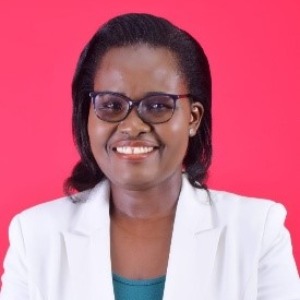Phoebe Wamalwa, Ministry of Health, Kenya
Background: Type 1 diabetes (T1D) is rising globally, with a disproportionate burden of complications in developing countries. In such settings, a 10-year-old diagnosed with T1D has an average life expectancy of only 13 years, five times lower than in high-income countries. Adver [....] » Read More








Title : Personalized and precision medicine (PPM) as a unique healthcare model through biodesign-driven translational applications and cardiology-related healthcare marketing to secure the human healthcare and biosafety
Sergey Suchkov, N. D. Zelinskii Institute for Organic Chemistry of the Russian Academy of Sciences, Russian Federation
A new systems approach to diseased states and wellness result in a new branch in the healthcare services, namely, Personalized and Precision Medicine (PPM). In this context, the need for innovative heart disease treatments has become critical since the diseases remain the world&r [....] » Read More
Title : A unique cell-driven phenomenon in the heart and the promising future of the innovative translational tools to manage cardiac self-renewal and regeneration
Sergey Suchkov, N. D. Zelinskii Institute for Organic Chemistry of the Russian Academy of Sciences, Russian Federation
Stem cell (SC)-based therapy has been considered as a promising option in the treatment of ischemic heart disease. The formation of new cardiomyocytes within the injured myocardium has not been conclusively demonstrated. Consequently, the focus of research in the field has since [....] » Read More
Title : Diagnosis and treatment of primary cardiac lymphoma in an immunocompetent 27 year old man
Moataz Taha Mahmoud, Madinah Cardiac Center, Saudi Arabia
Background: Primary cardiac lymphomas (PCL) represent extremely rare cardiac tumors which are accompanied by poor prognosis, unless they are timely diagnosed and treated. Despite the rarity of Primary cardiac lymphomas, they should always be kept in mind in the differential diagn [....] » Read More
Title : Predicting immune checkpoint inhibitor cardiotoxicity using machine learning: A systematic review of model performance and methodological quality
Vaibhav Roy, Sharda University, India
Background: Immune checkpoint inhibitors (ICIs) significantly improve cancer outcomes but can cause rare, potentially fatal cardiotoxicity, including myocarditis and major adverse cardiovascular events (MACE). Machine learning (ML) and artificial intelligence (AI) models have eme [....] » Read More
Title : Cholesteryl ester transfer protein inhibitors in patients with established ASCVD and dyslipidemia: A systematic review and meta-analysis
Noha Hammad, Port Said University, Egypt
Introduction: Cholesteryl ester transfer protein inhibitors (CETPis) are known to elevate high-density lipoprotein cholesterol (HDL-C) and reduce low-density lipoprotein cholesterol (LDL-C) levels. However, their clinical efficacy and safety in managing patients with established [....] » Read More
Title : Enhancing recovery: Quality of life changes measured through SF-12 in patients undergoing cardiac rehabilitation in a Colombian specialized center
Diana Carolina Alvarado Echeona, Universidad El Bosque, Colombia
Background: Cardiovascular disease remains a leading cause of disability worldwide, and cardiac rehabilitation (CR) programs play a crucial role in improving physical capacity, risk factor control, and overall patient well-being. However, evidence on short-term changes in health- [....] » Read More
Title : Predictors of post-operative complications in patients following cardiac surgery: A prospective observational study
Esha Mohamed Nisarahmed , M S Ramaiah University Of Applied Sciences, India
Introduction: Cardiac surgery remains a vital intervention for severe cardiovascular conditions. Despite advancements in surgical expertise and technology, postoperative complications—ranging from metabolic and hematologic disturbances to cardiovascular dysregulation— [....] » Read More
Title : Optimizing cardiac safety in contemporary procedures: A multimodal framework for risk stratification, surveillance, and intervention
Abel Don Palayoor , M.S Ramaiah University of Applied Sciences, India
Background: Cardiac complications remain a major source of perioperative morbidity and long-term dysfunction across modern cardiothoracic and interventional procedures. Despite advances in imaging, anaesthesia, and device technology, procedural cardiac risk is amplified by patien [....] » Read More
Title : Role of stress echocardiography with dipyridamol in the diagnosis of myocardial ischemia by evaluation of coronary flow reserve
Faiza Bekakchi, Chu setif, Algeria
Introduction: Myocardial ischemia is a major cause of cardiovascular morbidity and mortality, Early diagnosis is essential to optimize treatment and improve the prognosis, Stress echocardiography with dipyridamole, in particular the evaluation of coronary flow reserve, constitute [....] » Read More